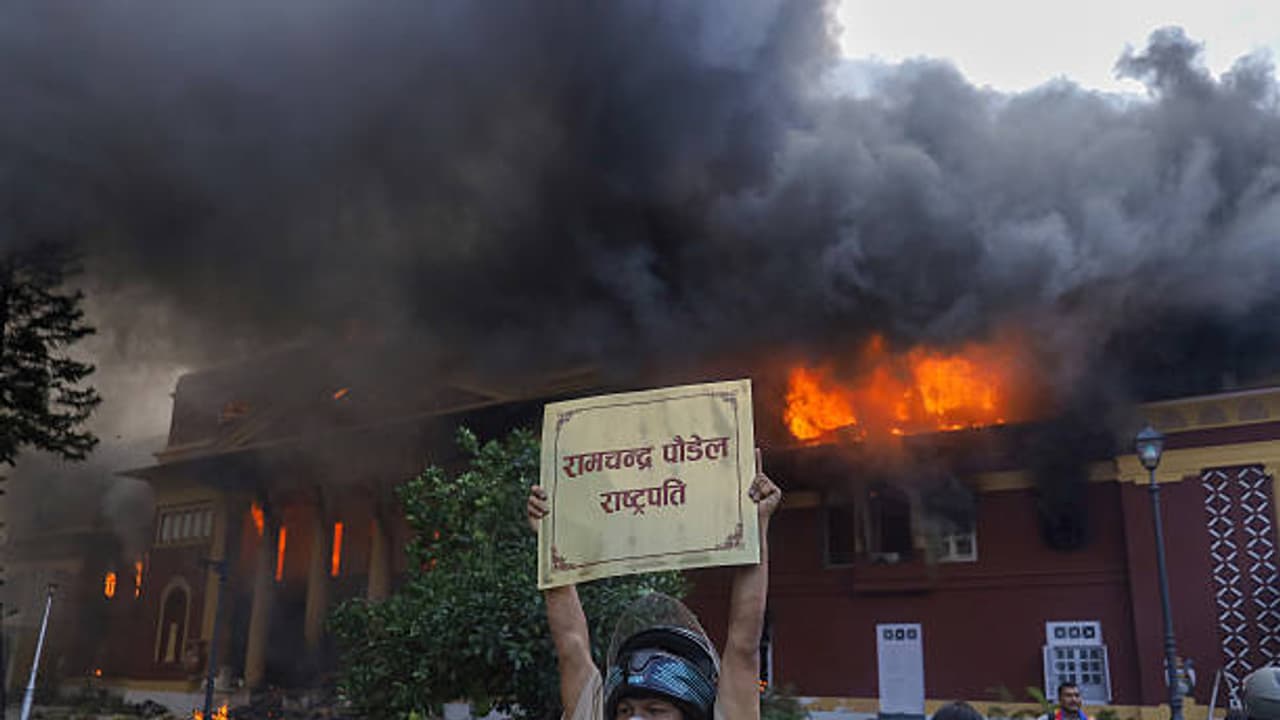Nepali President Ram Chandra Paudel is expected to meet the protesting citizens on Wednesday to pursue a peaceful resolution to the ongoing Gen Z movement in the country through dialogue.
Nepali President Ram Chandra Paudel is expected to meet the protesting citizens on Wednesday to pursue a peaceful resolution to the ongoing Gen Z movement in the country through dialogue. He will be meeting with a delegation of the protestors, along with the Nepalese Army. The call for the talks by President Paudel came on late Tuesday after he accepted the resignation of Prime Minister KP Sharma Oli.
Earlier, four ministers had resigned from the government following Nepal’s ‘Gen Z’ protest, a widespread movement led by young people, primarily students, to demand accountability and transparency from the government.
The protests began on September 8 in Kathmandu and other major cities, including Pokhara, Butwal, and Birgunj, after the government imposed a ban on major social media platforms, citing tax revenue and cybersecurity concerns.
Building on this anger, protesters are demanding an end to institutionalised corruption and favouritism in governance. They want the government to be more accountable and transparent in its decision-making processes. The protesters are also demanding the revocation of the ban on social media platforms, which they see as an attempt to suppress free speech.
19 Dead, Over 500 injured as protests escalate
As tensions mounted, the situation quickly escalated on the ground. At least 19 people were killed and 500 were injured in clashes with security forces. A curfew was imposed in several cities, including Kathmandu, to control the situation.
At the heart of the unrest was the government’s decision to impose a ban on 26 major social media platforms, including Facebook, Instagram, WhatsApp, and YouTube, citing concerns over misinformation and the need for regulatory compliance. Citizens saw this as an attack on free speech and a way to suppress dissent.
Public frustration deepened further when the “Nepo Babies” trend on social media exposed the lavish lifestyles of politicians’ children, highlighting the economic disparity between them and ordinary citizens. This fuelled public frustration over corruption, nepotism, and economic inequality.
Amid these grievances, Nepal’s ongoing jobs crisis, with nearly 5,000 young people leaving the country every day to seek work abroad, has added to the unrest.
(Except for the headline, this story has not been edited by Asianet Newsable English staff and is published from a syndicated feed)
